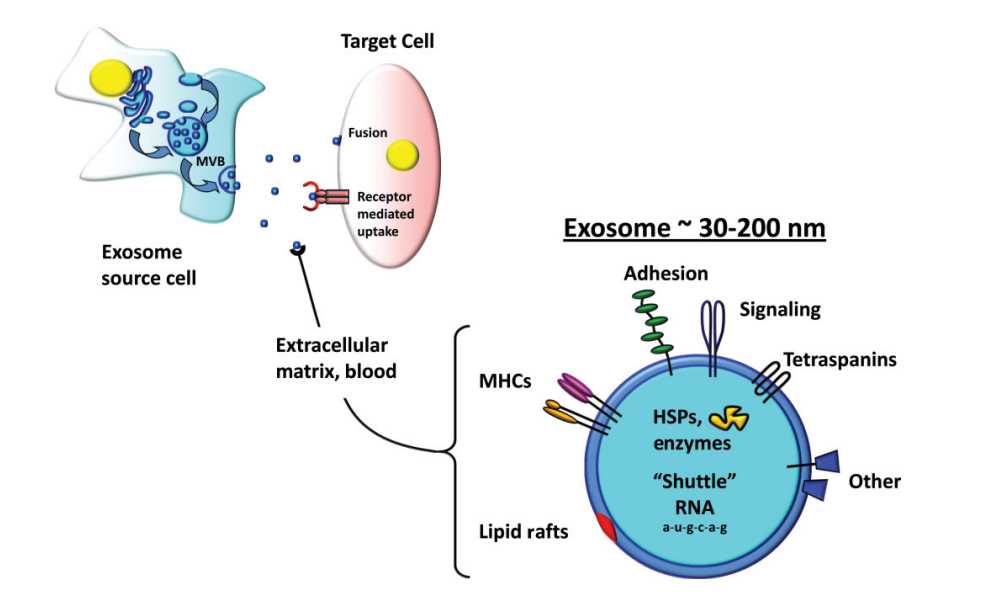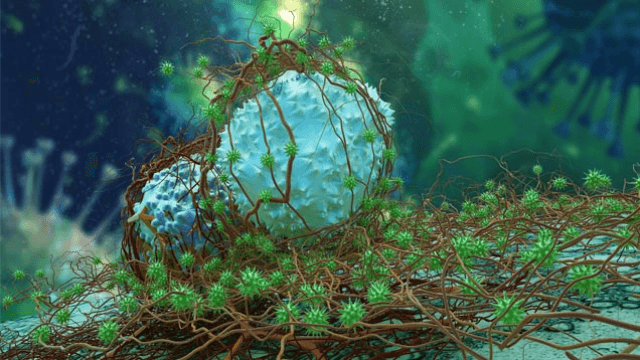Exosome-based Vaccine Design Service
Exosomes are nanovesicles produced and released by various mammalian cells that bud from the endosomal compartment. Exosomes cause both spread and limitation of infections, so they are considered to be suitable candidates for the development of vaccines for prevention and treatment of infectious diseases. In addition, exosomes secreted by host cells or cancer cells are involved in tumor development. Therefore, exosomes have great prospects for developing exciting approaches in cancer immunotherapy and drug delivery. Creative Biolabs has experts in exosome and our scientific team can provide you with the best advice in exosome-based vaccine design to accelerate your vaccine development program.
Exosomes
Exosomes, 30-100 nm endosomal vesicles, participate in critical biological functions such as mediation of cell-cell signaling by transporting materials between cells. It has been reported that various mammalian cells secrete exosomes, such as mast cells, intestinal epithelial cells, APCs, fibroblasts, hepatocytes, platelets, various lymphocytes, and several tumor cells. Through this process, cells can transduce their signals by unusual cell-cell communication. The released exosomes form a complex with differential receptors on the surface of other cells, fused to their membranes, and empty their exosome components into target cells to modulate their biological function.

Fig.1 Exosome production and contents. (Hood JL, 2012)
Exosome-based Vaccine for Infectious Diseases
Exosome is an important factor in determining the fate of infections. Mammalian cells infected by various pathogens release exosomes which may contain specific virulence compounds. Immunization of intracellular pathogens is the most important task for the immune system. Since these agents express and present their pathogenic molecules in cells and cannot reach the immune system, exosomes secreted by infected cells appear to be responsible for transmitting disease information. Exosomes cause both spread and limitation of infections, so they are considered to be suitable candidates for the development of vaccines for prevention and treatment.
An effective and less dangerous long-term therapeutic approach is to design a vaccine based on carrying microbial antigens as an effective adjuvant binding with immune cells or to applying APC-derived exosomes attacked by pathogens. Another idea is to identify compounds with the selective ability to induce secretion of specific exosomes for inhibiting infection and controlling harmful complications.
Exosomes in Cancer Immunotherapy

Wrapped in bilayer membranes of exosomes, the contents are very stable even after being transferred to a distant place. This intercellular communication of exosomes involves a variety of physiological and pathological processes, especially cancers. This subtle and complex system can manipulate local and distant environment to promote tumor growth, invasion, metastasis, and even tumorigenesis. Exosomes provide significant advantages for improving the therapeutic index of cancer treatment because they have the potential to target cells for intracellular delivery of their contents.
- Dendritic Cell-derived Exosomes (DEXs) as Tumor Vaccine
- Modified Tumor Cell-derived Exosomes (TEXs) as Tumor Vaccine
Creative Biolabs has always been serving vaccine researchers worldwide with its professionalism and service awareness. Please feel free to contact us for advice on exosome-based therapeutic cancer vaccines.
Reference
- Hood JL, Wickline SA. A systematic approach to exosome-based translational nanomedicine. Wiley Interdiscip Rev Nanomed Nanobiotechnol. 2012, 4(4): 458-67.
All of our products can only be used for research purposes. These vaccine ingredients CANNOT be used directly on humans or animals.


